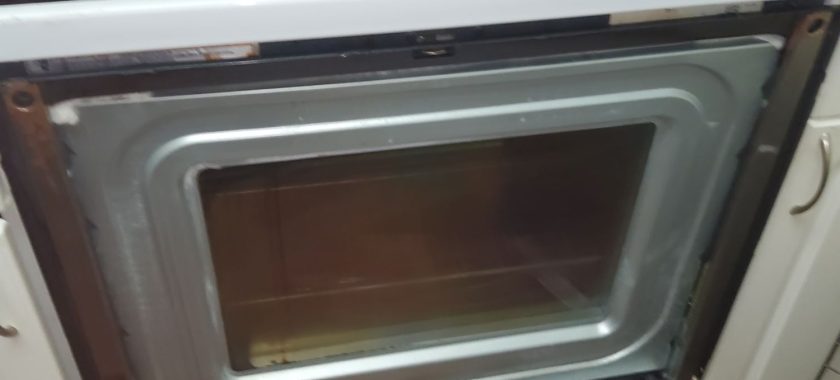An oven’s fan plays a critical role in ensuring even cooking by circulating hot air throughout the cavity. When it stops working, it can lead to unevenly baked goods, longer cooking times, or even complete oven failure. Two of the most common causes of a non-functioning oven fan are a faulty fan motor or a blown thermal fuse. Understanding how these components work — and how to diagnose and fix them — is key to restoring your oven’s performance safely and efficiently.
The Importance of the Oven Fan
Modern ovens, especially convection models, rely heavily on the fan system to distribute heat evenly. Without proper airflow, certain areas of the oven can become hotter than others, which leads to inconsistent cooking results. If your fan stops spinning or makes unusual noises, it’s a sign that something is wrong with either the motor or the electrical components that control it.
Common Symptoms of Fan Failure
Before jumping to conclusions, it’s important to identify whether the issue truly lies with the fan or another part of the oven. Here are the most common signs of a fan malfunction:
- The fan doesn’t spin when the oven is turned on.
- The oven heats unevenly or not at all.
- The fan makes grinding or humming noises.
- The oven overheats and shuts off unexpectedly.
If you experience any of these symptoms, you should avoid using the oven until the issue is properly diagnosed.
Faulty Fan Motor
One of the primary reasons your oven fan may not be working is a faulty fan motor. The fan motor is responsible for driving the blades that circulate air throughout the oven. Over time, it can wear out due to heat exposure, dust accumulation, or simply age.
How to identify a faulty fan motor:
- Listen for noise: A failing motor often emits a humming or buzzing sound even if the fan blades don’t spin.
- Check for resistance: If the fan blades are difficult to turn manually when the oven is off, it’s likely that the motor bearings have seized.
- Test the power: If power is reaching the motor but it isn’t running, the motor has likely burned out and needs replacement.
How to fix it:
Replacing a fan motor typically involves disconnecting the oven from power, removing the back panel, and installing a new motor. However, since ovens involve high voltage and delicate wiring, it’s best to have a professional handle the replacement.
Blown Thermal Fuse
Another common cause of a non-working oven fan is a blown thermal fuse. This small but vital component protects your oven from overheating by cutting off power when temperatures exceed safe limits. Once the fuse blows, the fan and sometimes the heating elements will stop working entirely.
Signs of a blown thermal fuse:
- The oven won’t heat up, even though it’s turned on.
- The fan doesn’t spin.
- There’s no power reaching the fan motor or heating elements.
How to check the thermal fuse:
You can test the thermal fuse using a multimeter for continuity. If there’s no continuity, the fuse is blown and must be replaced. However, if the fuse has blown, it’s important to determine why. Overheating due to a blocked vent, faulty thermostat, or restricted airflow can all trigger the fuse to fail again after replacement.
Preventing Future Fan Issues
While parts can fail naturally over time, regular maintenance and mindful usage can extend the lifespan of your oven’s fan and thermal components.
Here are a few preventive measures:
- Clean regularly: Grease and dust buildup can restrict airflow and overwork the fan motor.
- Avoid overloading: Don’t block air vents or overfill the oven; this can cause heat buildup.
- Monitor noise: If the fan starts making new or strange sounds, it’s a warning sign.
- Schedule regular service: Professional maintenance once a year can catch small issues before they turn into costly repairs.
When to Call a Professional
While it might be tempting to fix an oven issue yourself, dealing with electrical components and high heat mechanisms can be dangerous without the proper experience and tools. Incorrect repairs can cause further damage or create safety hazards.
A professional technician can accurately diagnose the issue, replace damaged parts, and ensure your oven is safe to use. If the fan motor or thermal fuse is the culprit, a certified repair expert can perform the replacement quickly and efficiently, getting your oven back to peak performance.
A non-working oven fan can disrupt your cooking routine and signal deeper electrical or mechanical issues. Whether it’s a faulty fan motor or a blown thermal fuse, timely professional attention can prevent further complications and ensure your appliance runs safely and efficiently.
If your oven fan has stopped working, don’t wait for the problem to worsen. Contact Chula Vista Appliance Repair Company today for fast, reliable service. Our experienced technicians specialize in diagnosing and repairing all types of oven issues. Call us now and restore your kitchen’s comfort and convenience!
Contact us
(619) 880-5508


